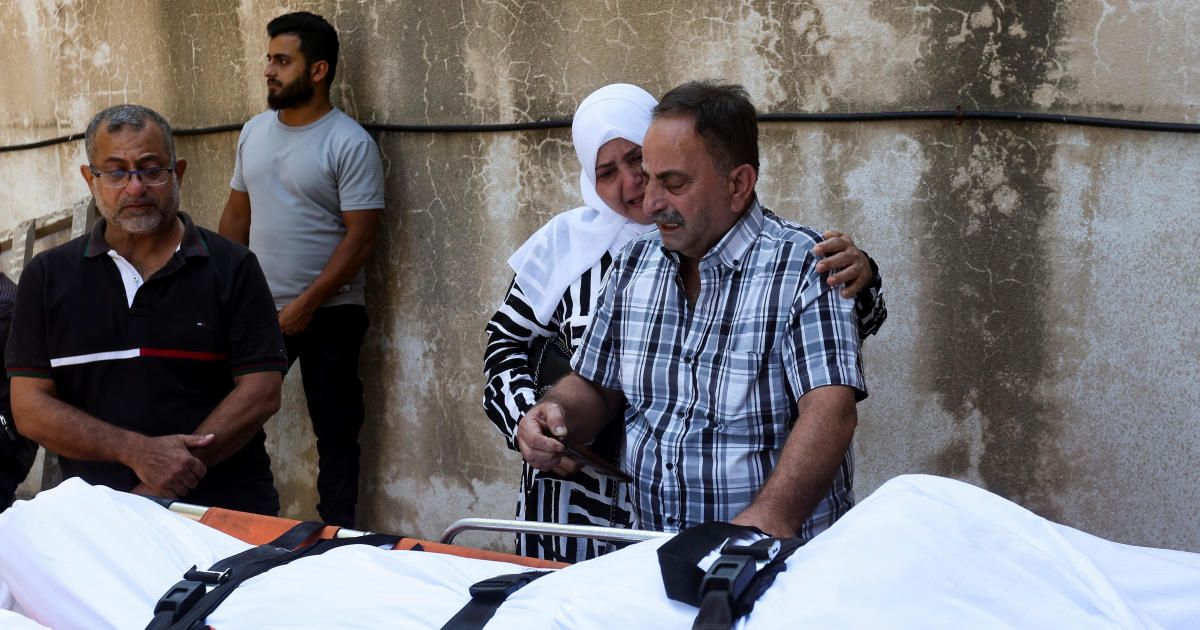The escalating conflict between Israel and Hezbollah in Lebanon has sparked international concern, with the potential for a wider regional war. Israel’s recent actions, including airstrikes on Hezbollah targets and a planned ground incursion, have resulted in significant casualties and displacement, pushing Lebanon’s already fragile infrastructure to the brink. The situation is further complicated by the involvement of other actors, such as Iran and the Houthis in Yemen, suggesting the conflict’s scope is beyond a simple bilateral affair. The international community’s efforts to de-escalate the situation remain challenged by the determination of both sides, fueling anxieties about the immediate and long-term consequences.
Israel’s Military Response and its Ramifications
Israel’s response to Hezbollah’s attacks has been swift and aggressive. The assassination of Hassan Nasrallah, Hezbollah’s long-time leader, marked a significant escalation, triggering retaliatory attacks from Hezbollah and further intensifying the conflict.
Airstrikes and Ground Incursions
Israel has conducted widespread airstrikes targeting Hezbollah infrastructure and personnel across Lebanon. These strikes have caused significant damage to civilian infrastructure and resulted in a high number of civilian casualties, creating a humanitarian crisis. The planned ground incursion, while described as “limited and localized,” carries a high risk of further escalation, potentially triggering a larger regional conflict. The extent of damage, however, appears limited according to statements made by IDF Spokesperson, Major David Baruch.
Collateral Damage and Humanitarian Crisis
The intense bombing campaigns have led to widespread destruction of civilian infrastructure, forcing approximately 1 million people to flee their homes. This displacement has overwhelmed refugee camps and shelters, leaving many families stranded with limited access to food, water, and medical care. The iconic Blue Mosque in Beirut has become a refuge for many displaced individuals seeking shelter amid the ongoing bombardment. One displaced mother recounted their flight from their homes in Dahiyeh, their children frightened and their prospects bleak. This highlights the severe human cost of the conflict.
Hezbollah’s Response and Regional Implications
Hezbollah, despite suffering heavy losses including the death of its leader and many top operatives, has vowed to continue its attacks on Israel. This unwavering commitment adds a dangerous element to the already volatile situation.
Retaliation and Continued Attacks
Despite the substantial damage inflicted, Hezbollah’s response has continued, showcasing the group’s resilience and military capability. Although Israel’s advanced air defenses significantly neutralize Hezbollah’s rocket and drone attacks, Hezbollah’s persistent defiance underscores the complexity and volatility of the conflict. Hezbollah’s Deputy Leader Naim Qassem blamed the US for its unlimited support to Israel, emphasizing the increased possibility of a wider regional conflict.
International Involvement and Escalation Concerns
The conflict’s potential to escalate into a regional war is a major concern. Iran’s support for Hezbollah, and the broader implications of Israel’s strikes on Yemen’s Houthi rebels are indicative of wider strategic conflicts that already extend beyond Lebanon and Israel. The United States’ role in providing intelligence and support to Israel raises concerns regarding potential direct US involvement. President Biden’s warnings against regional war, while highlighting international concerns, have done little to diminish the intensity of the conflict on the ground. The ongoing tensions indicate that there is no immediate path to de-escalation and compromise, leaving room for a large regional conflict to breakout.
The Humanitarian Catastrophe in Lebanon
The conflict has had a devastating impact on the Lebanese population, leaving thousands dead, millions displaced and essential infrastructure in ruins.
Civilian Casualties and Displacement
The casualty figures, with reports reaching 1,000+ deaths and over one million displaced people, are a testament to the intense and indiscriminate nature of the Israeli airstrikes. The impact on civilians is widespread and deeply alarming. The lack of readily available resources further exacerbates an already vulnerable population. Such indiscriminate nature of war clearly undermines the safety and well-being of civilians, as emphasized by displaced mother Samar al-Attrash.
Long-Term Effects and Reconstruction Challenges
The sheer scale of destruction in Lebanon will necessitate significant time and resources for reconstruction. Rebuilding the country’s ravaged infrastructure, housing displaced communities and assisting individuals suffering from trauma and violence requires international support. The crisis’s effects can create substantial challenges for rebuilding society and rebuilding a path to a more peaceful future in Lebanon.
Conclusion: Pathways to De-escalation
The Israel-Hezbollah conflict presents a grave threat to regional stability, humanitarian crisis, and peace in the long-term. The involvement of other state actors, the lack of compromise, and continued armed attacks, make a successful de-escalation particularly difficult. International pressure to cease hostilities remains a central approach to potentially solve this crisis. This complex situation demands immediate and continued international engagement through diplomatic pressure and extensive humanitarian assistance to mitigate the devastating consequences and prevent a wider conflict.
Take Away Points:
- The conflict between Israel and Hezbollah has led to a major humanitarian crisis in Lebanon.
- Israel’s military response, including airstrikes and a planned ground incursion, has resulted in significant civilian casualties and widespread displacement.
- Hezbollah, despite heavy losses, remains committed to continuing its attacks on Israel.
- The conflict’s potential escalation into a wider regional war is a major international concern.
- Immediate action and cooperation are required to avoid further bloodshed and address the humanitarian catastrophe.




